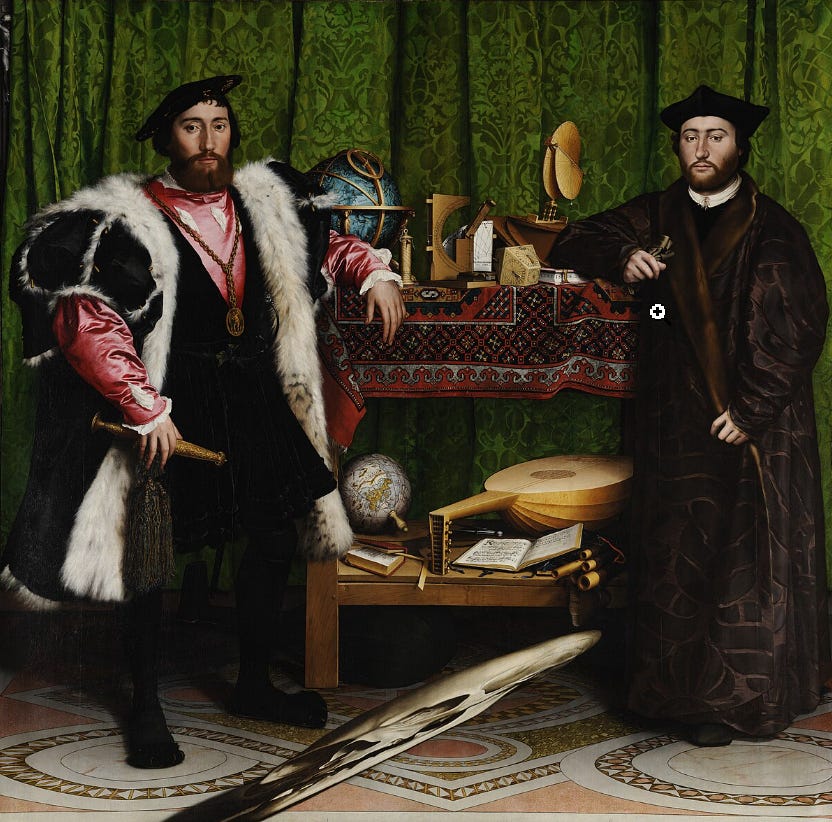The hardest part of carrying a flip phone is not being able to call Ubers. They’re artificially cheap where I live in Central Auckland, rarely costing more than $9-12, and they cut 20-40 minute bus rides into 10-15 minute car ones. It doesn’t help that Auckland bus fares aren’t cheap. At between $2.80-$7.65 a ride, I often call air-conditioned chauffeurs despite knowing, in my gut, that I shouldn’t.
I’ve managed to avoid using Uber Eats regularly, but that’s only because I’m Indian. Every time I’m tempted to order a servant to bring food to my house, I hear my Raj-surviving grandfather, Thakor, go “What, kid?! $30 for Pad Thai?!” in an indignant squawk. There’s no rhyme or reason as to why I’m comfortable hiring underpaid chauffeurs but not food delivery people, but the kernel of shame he implanted helped me avoid an expensive habit and I’m grateful to him for it.
Lately, I’ve been worried these apps are making us bad people. In Essay 5 of his art writing collection Ways of Seeing, John Berger writes that Eric Holbein’s 1533 oil painting The Ambassadors, pictured above, depicts mercantile capitalists who believe “the world exists to furnish their residence in it.” In the painting, the two men are adorned in gold, furs, and foreign riches, next to a globe charting Magellan’s 1519 maritime route which opened Europe to slavery and the wealth it’d steal from Africa and the Americas. The Ambassadors is a painting of an emerging class of colonists who let greed convince them the world exists to serve them. I think delivery apps condition us to think the same thing.
What does it do to us to click a button and have an underpaid chauffeur whisk us wherever we want? What does it do to us to click a button and have someone deliver us food for $3 an hour? What does it do to us to know the people doing this are brutally exploited and to keep pushing the button anyway? What kind of people are we letting these companies mold us into?
I think there’s a shorter distance between Uber and colonialism than I previously cared to admit. I watched the Palestinian documentary No Other Land a few weeks ago and was struck by the thought that Israeli settler homes in Palestine’s Masafer Yatta look just like American ones. They’re built like American tract houses with American subdivisions and fenced-off, American backyards. I later read that housing in central Israel is shitty and expensive, and that the colonies offer settlers the possibility of a richer life. I found myself wondering “At what price point were those settlers willing to surrender the last vestige of their conscience for luxury?” At what price point are we, using gig economy apps to hire underpaid servants, doing the same?
Uber, like many gig economy apps, doesn’t turn a profit. I’ve become increasingly convinced their purpose is to deepen master-servant class relations rather than to make money. I think the ruling class wants us numb to labor exploitation for the same reason they want us eating meat: so we have a visceral incentive not to think about where our treats come from. The more numb we become, the more frightened I get of how they’ll leverage that. If they can make us indifferent to factory farms, to their expansion of a sub-minimum wage servant population, and to increased homelessness, what else might they do? What other atrocities might they exploit our numbness to commit?
As it currently stands, I’m going to find the cell phone number of a cab company, put it in my flip phone in case of emergencies, and try to use Uber as little as possible. I’ll get better at taking the bus even when it’s a pain in the ass. My life might slow down because I won’t be able to get to as many things as I used to, but that’ll probably be good for me. I want to feel good about the way I travel and it’s hard to do that when I know the guy chauffeuring me is making four bucks a ride.
Tāmaki (Auckland) Events
I recently saw Myles Knowles’s dance show “Flesh or Wound” at Basement Theatre, starring Ego, Venus, and Awa Puna, and I really enjoyed it. It reminded me of Anne Carson’s Autobiography of Red, and the lighting work, in which they make a moving mirror look like Monet’s Water Lilllies and a forest floor as they dance with it, was fantastic. It’s playing the evenings of Friday, February 14 and Saturday, February 15 and I strongly recommend going to see it if you’re in Tāmaki. You can buy tickets here.
Recommended Reading
I liked this essay by Patrick Redford on the limp half-heartedness of Superbowl advertising and how it’s a mirror to a west in decline.
I liked this essay by Alicia Kennedy on why she prefers art writing to food writing, despite being a food writer herself.
I liked this essay by Magdalene Taylor on how phones are keeping people from getting laid and being happy.
I liked this poem by Crystal Williams, about her fear that a love affair could destroy a 33-year friendship.




happy to report that your writing + august lamm's substack have pushed me to finally buy my own flip phone :) thank you!